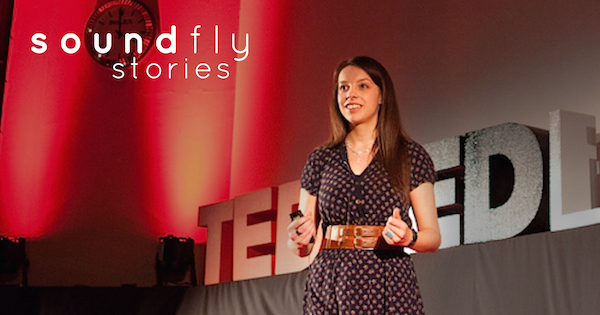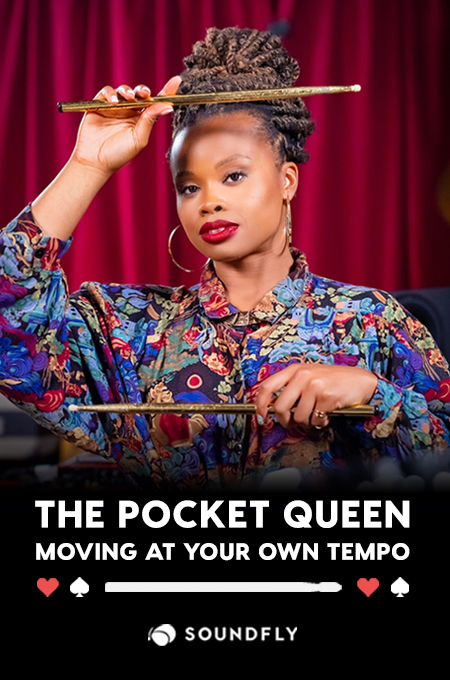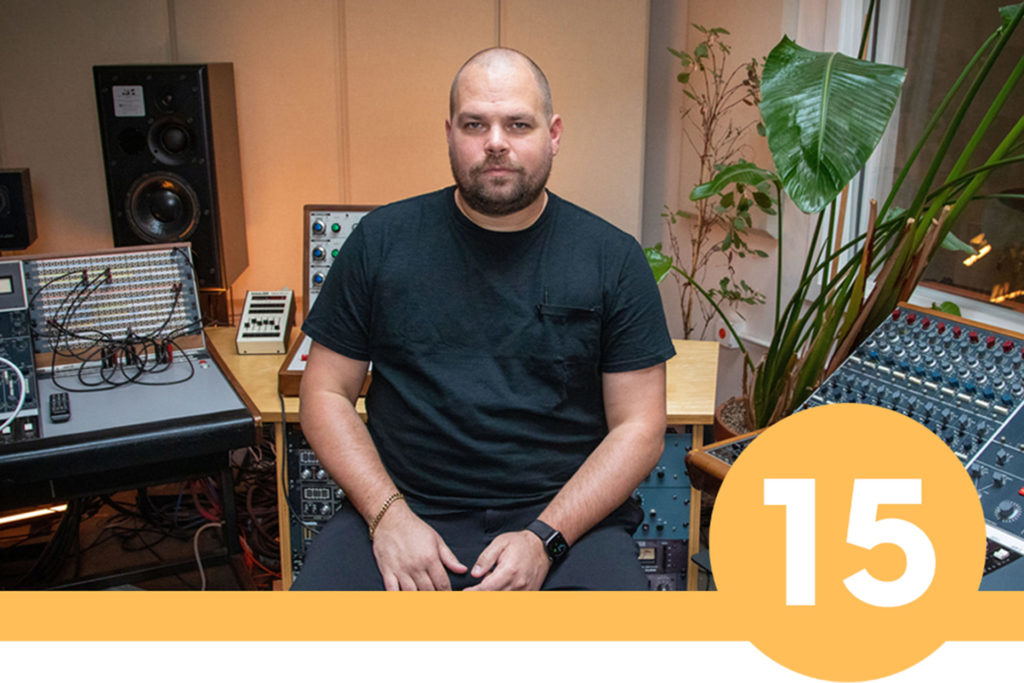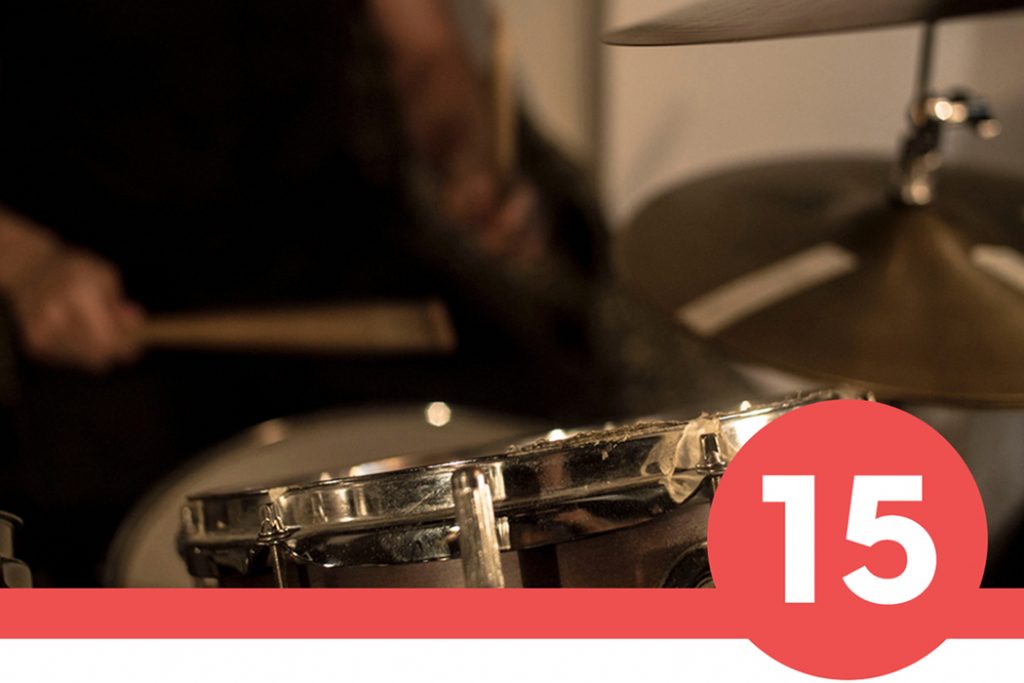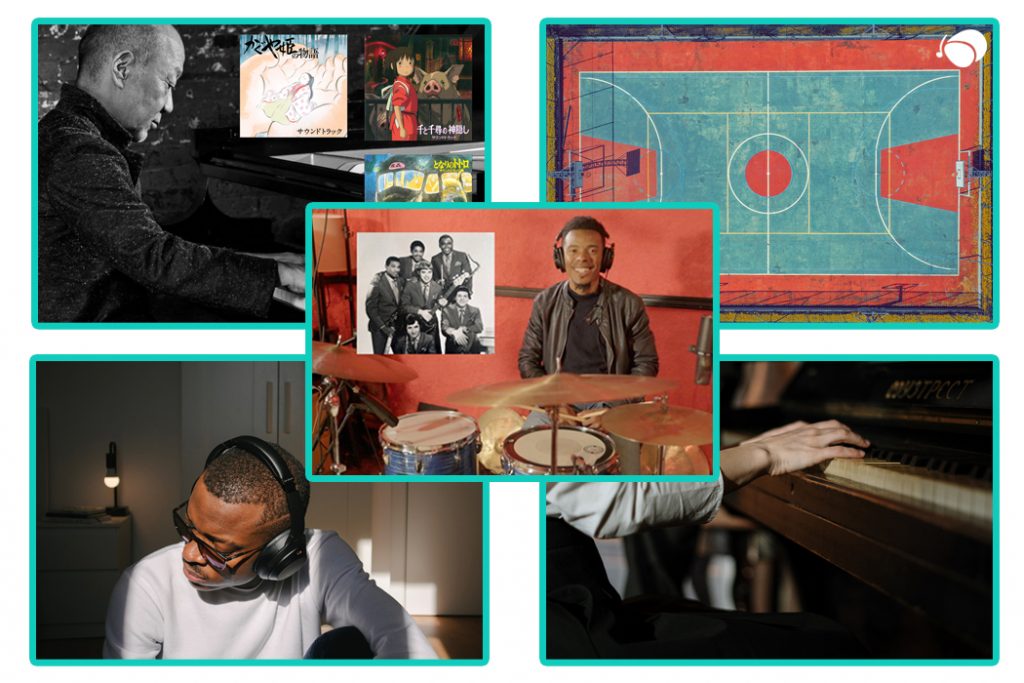
Dr. Victoria Williamson still remembers the first time she saw the brain scan of someone who was listening to their favorite piece of music. The scan showed a scene of intense activation — it looked like the entire brain was lit up and buzzing. The moment confirmed something she’s always believed and has since spent her professional life trying to better understand: the powerful relationship between music and the human mind.
Dr. Williamson is a music psychologist and the Director of the Music and Wellbeing Research Unit at the University of Sheffield in the UK. Her team is tasked with “studying, assessing and optimizing the use of music for everyday and extraordinary challenges to our well-being.” We all know that music is a powerful thing. Dr. Williamson and her team are trying to understand how best to wield it to improve people’s lives.
We recently had a chance to chat with Dr. Williamson and learn more about her research, why music affects us like it does, and how each of us can use it to improve our well-being day to day.
Addressing Challenges to Well-Being
One of the areas that Dr. Williamson and her team focus on is caring for people with dementia. This is just the sort of challenge to well-being that the research unit is set up to look at and Dr. Williamson is optimistic about how music can help, whether getting patients involved in a choir or using it to facilitate communication between patients and their loved ones when other avenues don’t seem to be working.
“The wonderful thing about music is that it’s not restricted to any particular part of a person’s journey with dementia,” she says. “It can be employed to support them all the way through. We see in some of our dementia patients toward the end of their lives, you can use music as a way to get that little bit of eye-contact or that little bit of touching and reaching behavior that means you’re making a connection with that person. And that can mean everything to their carers and loved ones.”
That’s not to say that music is a magic bullet. In fact, Dr. Williamson says that’s a really dangerous way to look at it, because it can give false hope. Music is not going to cure someone of dementia, but instead has the power to improve and support well-being in that person and the people around them.
“We believe, because of the way we see music being so helpful and music ability surviving severe traumas, that there appear to be situations where music is a uniquely powerful tool for re-establishing communication and for stimulating intellect and emotions. There are other things that can work as well, but in terms of non-pharmaceutical aids, we believe that music is one of the most powerful tools. The research unit is trying to understand why and how we can best apply it.”
Why Is Music So Powerful?
It seems that there are a couple arguments as to why music is able to have such a powerful affect on us, even when other things can’t. As Dr. Williamson explains, one of them is that it has been with us since before we were born. Even when we’re in utero, the sounds we’re picking up are more like musical sounds, from both inside and outside our mothers’ bodies. From there, its integration into our lives only grows.
If you travel to India or Indonesia or Japan, you encounter sounds that are definitely music and elicit similar emotional responses in their audiences, but may not share those same elements, or at least in the way we think about them.
The other argument Dr. Williamson points out is that music gets deep into our memory and often survives there. They’re not sure exactly why, though there are a few theories. It could be that it stimulates a number of the deeper, older centers of the mind (those associated with the limbic system or hippocampus for example) which are more likely to survive most brain injuries or conditions like dementia. Or it may be because we associate music with so many powerful life events and emotions, which are also good at surviving.
Whatever the case, music moves us because it’s deeply embedded in our lives and our brains.
Music and Emotions
In fact, a great deal of our relationship with music is based on what Dr. Williamson calls “a lifetime of learning.” Basically, we’re excellent at recognizing emotions in music in large part because we’ve been taught to. We come to recognize certain pitches, harmonies, tonalities, etc. with the emotions they’re most commonly associated with. In fact, if we encounter a type of music we’re less familiar with, such as Javanese gamelan, we may not have the same emotional response as someone who grew up listening to it simply because we haven’t been trained to.
That said, Dr. Williamson points out that “there is some evidence that some basic patterns in music are recognized universally.” She told me about a study done where they exposed a tribe in Western Cameroon called the Mafa to Western tonal music they’d never encountered before. The researchers played them clips that represented happiness, sadness and fear (according to a number of Western students). The Mafa weren’t as good as the Western students in picking out the emotions but they were able to do it, and at a higher rate than is accounted for by statistical chance.
“Why that happens is a matter for debate,” Dr. Williamson says, “but one of the most popular theories is that the way we represent basic human emotions in music has to do with the way that we represent those emotions with our own bodies and voices. When we’re happy we talk with a higher voice, we talk with more emphasis, more volume, and more changes in pitch. Whereas when we’re sad, we talk slower, we talk quieter, there are less changes in our voices.”
Basically, music mimics our language in a certain way and allows us to communicate some of our most basic emotions.
So What Is Music?
In her book, You Are the Music, Dr. Williamson defines music as “a universal, human, dynamic, multi-purpose sound signaling system.” One of the challenges is how to separate music and language. The definition for language would actually be much more specifically related to its purpose as a means of human communication. So to define music she basically came up with a list of things we know it definitely IS that would be tough to argue with. She explains:
“It’s universal because there is not now or has ever been a human culture known that hasn’t used music. It’s human because we haven’t got strong evidence at all of animals using music in any way. When they beat a drum, there’s no evidence that it is any more musical than language-based communications. It’s dynamic, which respects that fact that music changes over time and over culture. It’s multi-purpose, so it can be for emotional trigger or it can be for identifying something or it can be for soothing an infant or it can be for bringing a crowd together. And it’s a sound based signaling system.”
How to Use Music to Improve Your Own Well-Being
So how can each of us use this sound-based signaling system to improve our own lives on a day-to-day basis? Dr. Williamson had one powerful piece of advice: be more deliberate in your music choices.
“What I find in my studies of well-being is the majority of people listen to music intuitively. You know, they just pop a CD on while they’re cooking or when they’re sad or before a meeting, and there isn’t a lot of conscious thought that goes into the selection. For example, when I work with cancer patients, and I ask them to think about music that they would like to hear, it takes them a little while. When they think consciously about it, then they can very easily come up with the music that makes them feel better or triggers the memories they want or makes them feel strong or makes them feel happy. But it does take that thought.”
Basically, by paying attention to the music you particularly like or that you associate with particular feelings, you can gain a better understanding of what it does for you — and then use it more deliberately in situations when you need it. It could be as simple as having a “relaxing at the end of the work day” playlist ready for your ride home.
Dr. Williamson explains that you can also do this to trigger certain memories. “There’s an initiative going on called Playlist for Life at the moment that is about, when people are first diagnosed with memory problems or dementia-related illnesses, taking the time to go through the music of their life and to come up with music for different states and different aims — if you want to cook, or you want to run, or whatever. The goal is to have those playlists available because that can be very useful down the line when a person might not be communicating anymore, might not be able to reflect in such a deep way on their own personal life memories, but the music might still trigger access to those memories. It’s almost like a backup.”
All in all, music has a ton of power to improve our well-being if we’re conscious about it. Dr. Williamson and her team are just getting started, and we can’t wait to hear what else they discover. In the meantime, I’m off to create a playlist for moments when I’m puzzling about the immense complexity of the human brain and the way we interact with music, just in case…
For more from Dr. Victoria Williamson, check out her blog musicpsychology.co.uk and read her book You Are the Music: How Music Reveals What It Is to Be Human.
